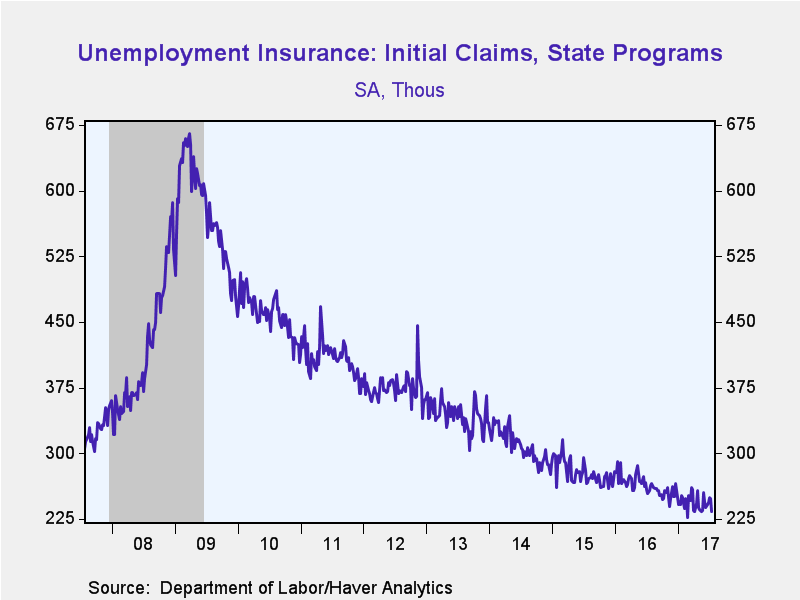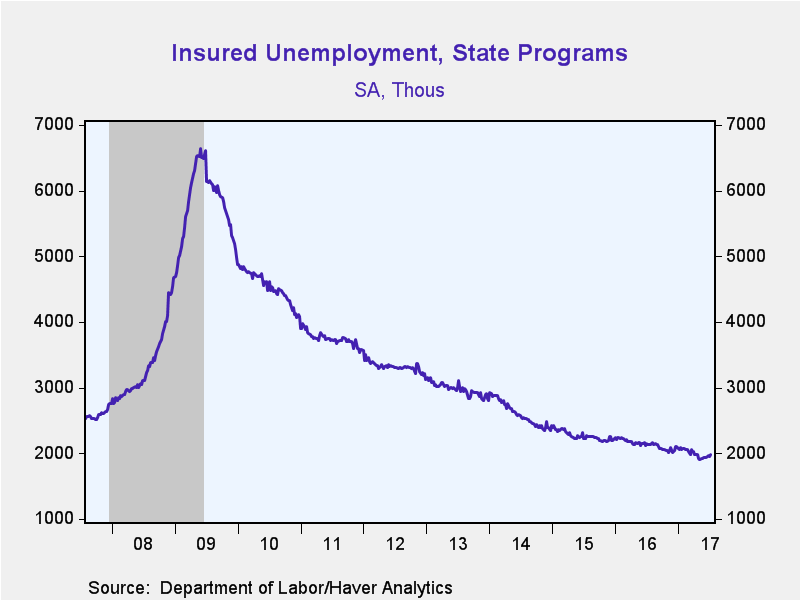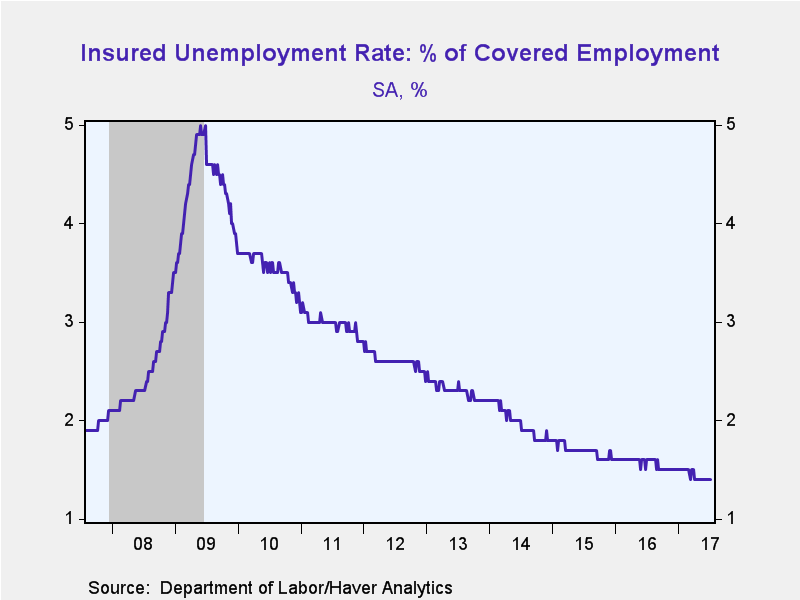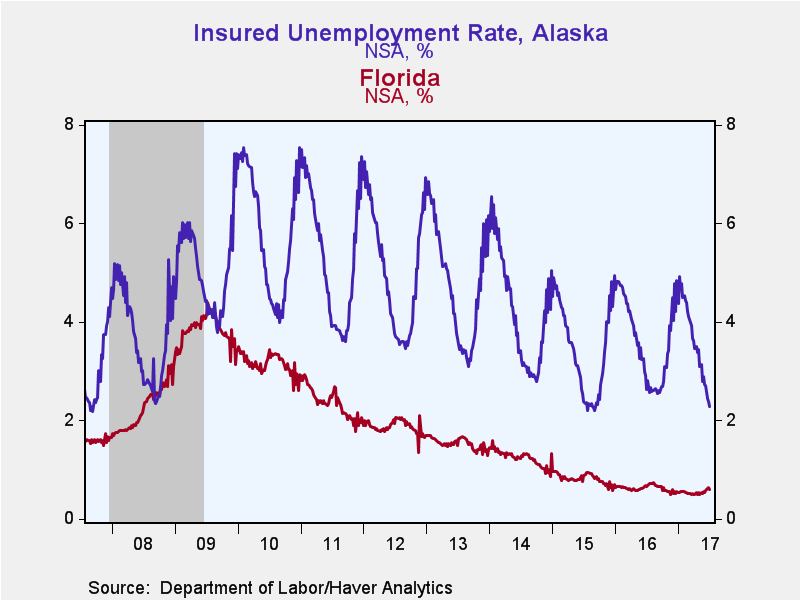 Global| Jul 20 2017
Global| Jul 20 2017U.S. Initial Unemployment Insurance Claims Return to Nine-Week Low
by:Tom Moeller
|in:Economy in Brief
Summary
Initial claims for jobless insurance claims fell to 233,000 (-4.4%) during the week ended July 15 from 248,000 in the prior week, revised from 247,000. Expectations called for 245,000 claims in the Action Economics Forecast Survey. It [...]
Initial claims for jobless insurance claims fell to 233,000 (-4.4%) during the week ended July 15 from 248,000 in the prior week, revised from 247,000. Expectations called for 245,000 claims in the Action Economics Forecast Survey. It was the lowest level of claims since the second week of May, and near the 1973 low. The four-week moving average declined to 243,750.
The latest initial claims figure covers the survey week for the July employment survey. Claims were down 9,000 (3.7%) from the June period. During the last ten years, there has been a 72% correlation between the level of initial claims and the m/m change in nonfarm payrolls.
Continuing claims for unemployment insurance increased to 1.977 million (-7.6% y/y) in the week ended July 8 and reversed the prior week's decline. The four-week moving average of claimants increased to 1.959 million, the highest level since late-April.
The insured unemployment rate remained at the record low of 1.4%.
Insured rates of unemployment continue to vary widely across the country. For the week ended July 1, the lowest rates were in South Dakota (0.29%), Indiana (0.50%), Nebraska (0.53%), North Carolina (0.55%), Florida (0.60%) and Tennessee (0.79%). The highest rates were found in New Jersey (2.47%), Connecticut (2.34%), Alaska (2.29%), Massachusetts (1.88%), California (1.85%) and Illinois (1.72%). These state data are not seasonally adjusted.
The unemployment insurance claims data begin January 2, 1971. Data on weekly unemployment insurance are contained in Haver's WEEKLY database and they are summarized monthly in USECON. Data for individual states are in REGIONW. The expectations figure is from the Action Economics Forecast Survey, carried in the AS1REPNA database.
| Unemployment Insurance (SA, 000s) | 07/15/17 | 07/08/17 | 7/01/17 | Y/Y % | 2016 | 2015 | 2014 |
|---|---|---|---|---|---|---|---|
| Initial Claims | 233 | 248 | 250 | -4.4 | 263 | 278 | 308 |
| Continuing Claims | -- | 1,977 | 1,949 | -7.6 | 2,136 | 2,267 | 2,599 |
| Insured Unemployment Rate (%) | -- | 1.4 | 1.4 |
1.6 |
1.6 | 1.7 | 2.0 |
Tom Moeller
AuthorMore in Author Profile »Prior to joining Haver Analytics in 2000, Mr. Moeller worked as the Economist at Chancellor Capital Management from 1985 to 1999. There, he developed comprehensive economic forecasts and interpreted economic data for equity and fixed income portfolio managers. Also at Chancellor, Mr. Moeller worked as an equity analyst and was responsible for researching and rating companies in the economically sensitive automobile and housing industries for investment in Chancellor’s equity portfolio. Prior to joining Chancellor, Mr. Moeller was an Economist at Citibank from 1979 to 1984. He also analyzed pricing behavior in the metals industry for the Council on Wage and Price Stability in Washington, D.C. In 1999, Mr. Moeller received the award for most accurate forecast from the Forecasters' Club of New York. From 1990 to 1992 he was President of the New York Association for Business Economists. Mr. Moeller earned an M.B.A. in Finance from Fordham University, where he graduated in 1987. He holds a Bachelor of Arts in Economics from George Washington University.
More Economy in Brief
 Global| Feb 05 2026
Global| Feb 05 2026Charts of the Week: Balanced Policy, Resilient Data and AI Narratives
by:Andrew Cates










